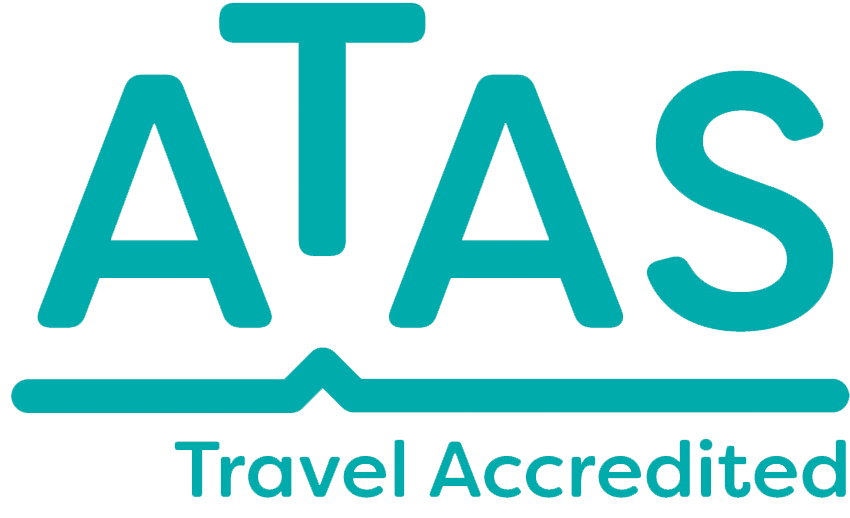- 1300 761 980

Travelling to Africa and embarking on an African safari is one of the most exciting adventures you will have. However, like most remote areas of the world, it is important to ensure you have the most up-to-date information regarding recommended vaccinations and health protections.
We have found over the last 30 years that it is very rare for people to get seriously ill. We always ensure our customers receive the most up-to-date and correct advice and highly recommend visiting a travel medical centre.
Different countries in the African continent require different immunisations. It is best to visit your doctor or local travel clinic at least 6 – 8 weeks before travelling to Africa. This allows enough time to complete the vaccination schedule. The most common and generally recommended vaccinations for African countries are the following:
This is compulsory for those travelling to yellow fever endemic areas, including East Africa, West and Central Africa as well as some areas in North Africa. Generally this applies to clients visiting Kenya, Tanzania (if flying via Kenya), Uganda, Rwanda, Angola, Ethiopia and all other Central African countries. The Yellow Fever vaccination is required if you are returning to Australia after being in any of these countries or if you are entering other non-Yellow Fever listed countries in Africa, like South Africa. All Australians returning to Australia from those affected countries, must provide completed vaccination books at customs proving inoculation. Yellow fever is transmitted by certain mosquitos, by feeding on infected primates (human & non-human). Therefore, it is important to use an effective insect repellent as well as having the vaccination.
Hepatitis A, also known as Hep A or HAV, is typically transmitted through contaminated food or close personal contact with an infected person. Hep A is a risk in virtually all countries in the World. A full two-dose of the Hepatitis A vaccine is recommended for Africa. We also highly recommend to all travellers basic hygiene and food safety precautions.
Like Hep A, Tetanus, or lock-jaw is common all over the world, including Australia. This is a serious bacterial infection usually caused by a puncture wound (eg stepping on a rusty nail). Despite destination and low risk of infection, travellers should ensure they have an up-to date inoculation.
While Typhoid Fever occurs around the world, it is much more common in developing countries. This is mostly due to a lower standard in public hygiene, especially in townships and villages. Inadequately washed hands commonly transmit Typhoid Fever. African Travel Specialists recommended lodges and hotels prioritise hygiene in all areas of cooking, cleaning and serving. However, this vaccination is highly recommended if you are travelling to Africa.
The chance of contracting rabies is a risk in some developing African countries. In particular for those travellers who are working in rural villages or volunteering. A bite or scratch from an infected animal can transmit Rabies. More commonly carried by infected wild animals like monkeys or squirrels means it is a lower risk for most clients travelling on safari. Any rabid animals are normally identified and killed immediately within those villages being visited. As a precaution, we advise anyone visiting villages or local towns or townships to not make contact with any local dogs. For travellers volunteering at rehabilitation or animal rescue centres, we recommend the rabies vaccination.
Whilst Meningitis can be fatal depending on the strain of bacteria you contract, less than 1% of long stay travellers (those staying in the Meningitis belt – an area between Ethiopia and Senegal in the west) have contracted meningitis. Only a very small proportion of those infected have died. The disease is transmitted from person to person by direct contact or through coughing and sneezing. Symptoms start out as being similar to the common flu. Your protective membranes covering the brain and spinal cord become swollen and inflamed.
Malaria is a mosquito borne disease, common all over the World, including Africa. There are 4 different varieties of malaria, and symptoms and risks vary according to the type contracted. To reduce the risk of malaria consider anti-malaria tablets such as Malerone and Doxocycline (Doryx). Depending on where in Africa you plan to go and for how long, these preventative medications against Malaria are highly recommended. Because most strains of Malaria in Africa are chloroquine resistant, ensure you use an effective insect repellent. We also recommend a discussion with your travel health professional before travelling to Africa.
It is extremely rare for travellers to contract Cholera as tourists are not generally in the areas where outbreaks are common. Drink bottled water ONLY to avoid any risk of Cholera. Local people residing in areas with contaminated water are at a much higher risk of contracting Cholera.
The Tsetse fly –A bigger and more aggressive version of the March fly (commonly found in Australia). Sub-Saharan Africa, in particular Southern Tanzania, Zimbabwe and some parts of Serengeti are home to the Tsetse Fly. The most effective way of stopping their bite is using a combination of Mosiguard and Dettol Crème. We highly recommend wearing muted colours to avoid bites, as well as long sleeves and long pants. It is a good idea to stay away from blue and black. African sleeping sickness is a parasitic disease transmitted by the tsetse fly, the disease it treatable. We’ve only seen very rare cases of people (no tourists that we are aware of) contracting this disease.
Visit your local travel medical professional or GP well in advance of travelling. Here you can receive health and vaccination advice tailored to your overall health, age and travel itinerary.
Suite 2, 1st Floor
261-271 Wattletree Rd
Malvern VIC 3144



For tailor-made itineraries or enquiries…